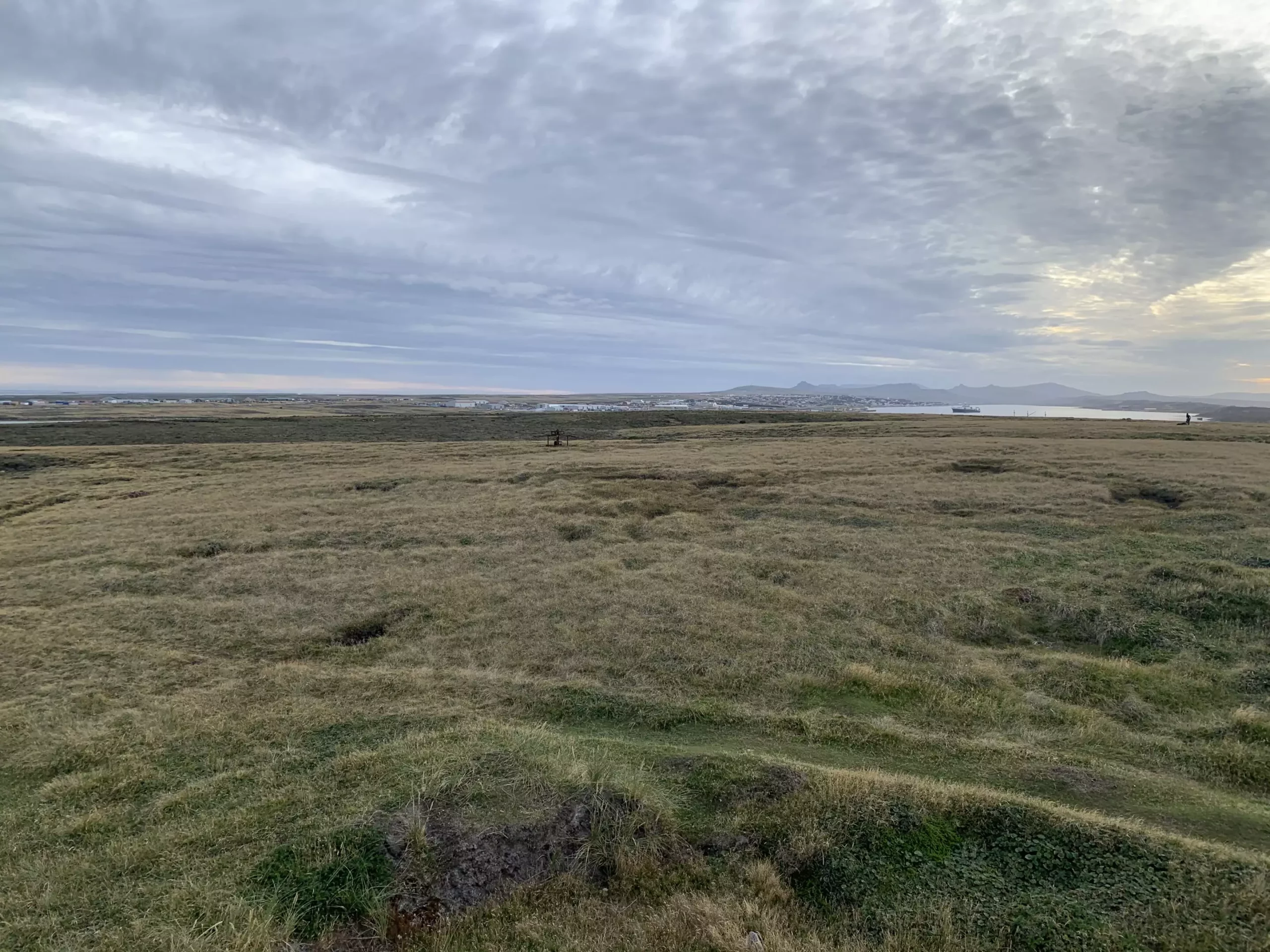Recent research led by Dr. Zoë Thomas from the University of Southampton has uncovered startling evidence indicating that the stark, windswept landscape of the Falkland Islands was once home to a vibrant and diverse rainforest. This groundbreaking study reveals that up to 30 million years ago, what is now a rugged grassland was characterized by lush, wet woodlands, akin to the temperate rainforests found in Tierra del Fuego at the southern tip of South America. The research findings were recently published in the journal Antarctic Science and provide a fascinating glimpse into the ecological history of the South Atlantic archipelago.
The journey to this momentous discovery began in an unlikely setting: the small community of Port Stanley, the capital of the Falkland Islands. Chance conversations among scientists led to the unearthing of preserved prehistoric tree remains and pollen during construction work in early 2020. Dr. Thomas recounts that during a different research endeavor in the Falklands, she learned of intriguing finds during a conversation with a local researcher. The excavation for a new care home had unexpectedly revealed a deep peat layer containing remarkably well-preserved tree trunks and branches. This sparked important questions regarding the history of the region and its ability to sustain forest life.
What stands out in this research is the pivotal role played by the local community in facilitating scientific discovery. The initial lead, shared informally among researchers and locals, underscores how invaluable such community connections can be. Dr. Thomas explains that had they not engaged with the islanders, it is likely that these ancient remnants would have remained undiscovered. The collaboration exemplifies the importance of local knowledge and its potential impact on scientific advancements.
Such discoveries are rare, particularly in remote locations like the Falklands. The pristine condition of the tree remains found at Tussac House near Stanley Harbour was striking; they appeared newly buried despite being millions of years old. The preservation is attributed to the unique environmental conditions of the peat layers, which effectively protected the organic material from decay.
Following the fieldwork, the research team faced the challenge of accurately dating the ancient woods. Traditional radiocarbon dating techniques proved insufficient, as the tree remains were too old for conclusive results. Instead, scientists turned to the analysis of pollen spores embedded within the peat, which revealed a timeline for the remnants dating back between 15 and 30 million years. These findings suggest that the Falkland Islands experienced a significantly different climate in its past, one that supported a diverse range of flora and fauna.
The paleoecological implications of such data are profound. The current, unforgiving climate of the Falkland Islands, where conditions are too windy and the soil too acidic to support trees, starkly contrasts with its former, milder climate. Once, the islands blossomed with tree species that are now extinct, having likely made their way to the archipelago carried by westerly winds from rainforests that extended across southern continents.
These revelations not only reshape our understanding of the Falkland Islands’ environmental history but also raise further questions about the climatic changes that led to the decline of the rainforest. Speculation about shifts towards colder and drier conditions offers insights into the fragility of ecosystems and their historical adaptability.
Dr. Thomas expresses gratitude towards the community members who facilitated this remarkable find, highlighting how their openness and collaboration were crucial to her team’s successful investigation. The study serves as a reminder of the potential that lies within local wisdom and community engagement in preserving natural history.
As researchers continue to analyze these findings, the implications for conservation and understanding climate change become increasingly relevant. By piecing together the ecological narrative of the Falkland Islands, scientists can gain insights into how past climates have shaped our current environments. This knowledge can inform future conservation efforts and foster greater appreciation for the impacts of human-induced climate changes.
This remarkable journey into the subterranean treasures of the Falkland Islands not only replaces a barren image of the past with a vibrant tapestry of ancient woodlands but also underscores the importance of interdisciplinary collaboration between scientists and local communities in uncovering the secrets of our planet’s history. As more studies emerge, we may yet uncover further relics of a world that was, reminding us of the delicate balance of nature and the urgent need for its preservation.

